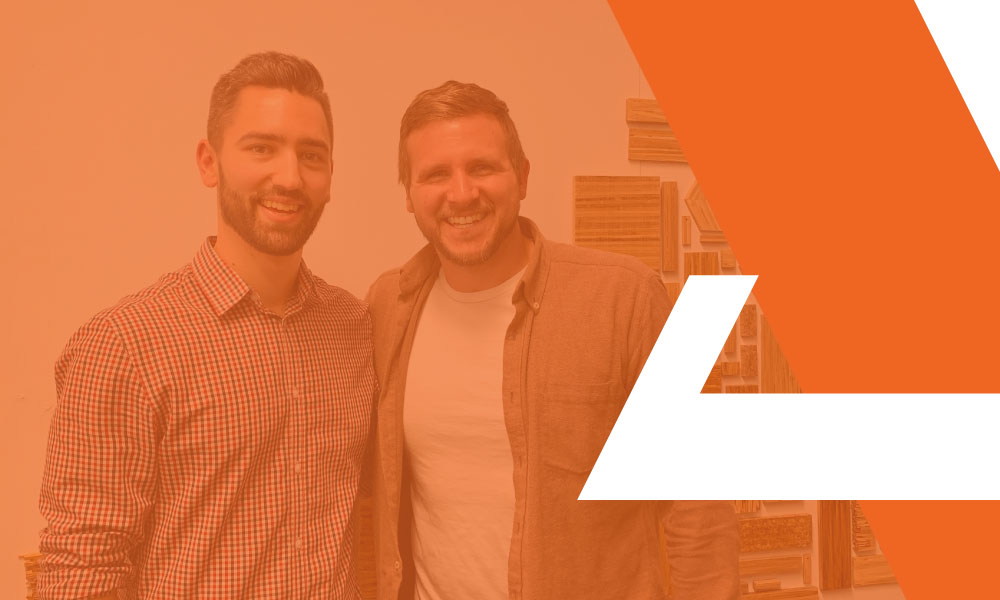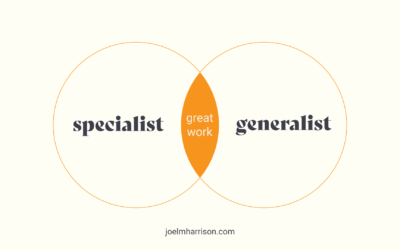Subscribe on: iTunes | Stitcher | Google Play | Spotify
Have you ever had a genius business idea, or new product idea by staring at something that was in your hands? There’s something thrilling about the visceral reaction of seeing a problem, and beginning to find a solution. This is exactly what ChopValue has done with used chopsticks.
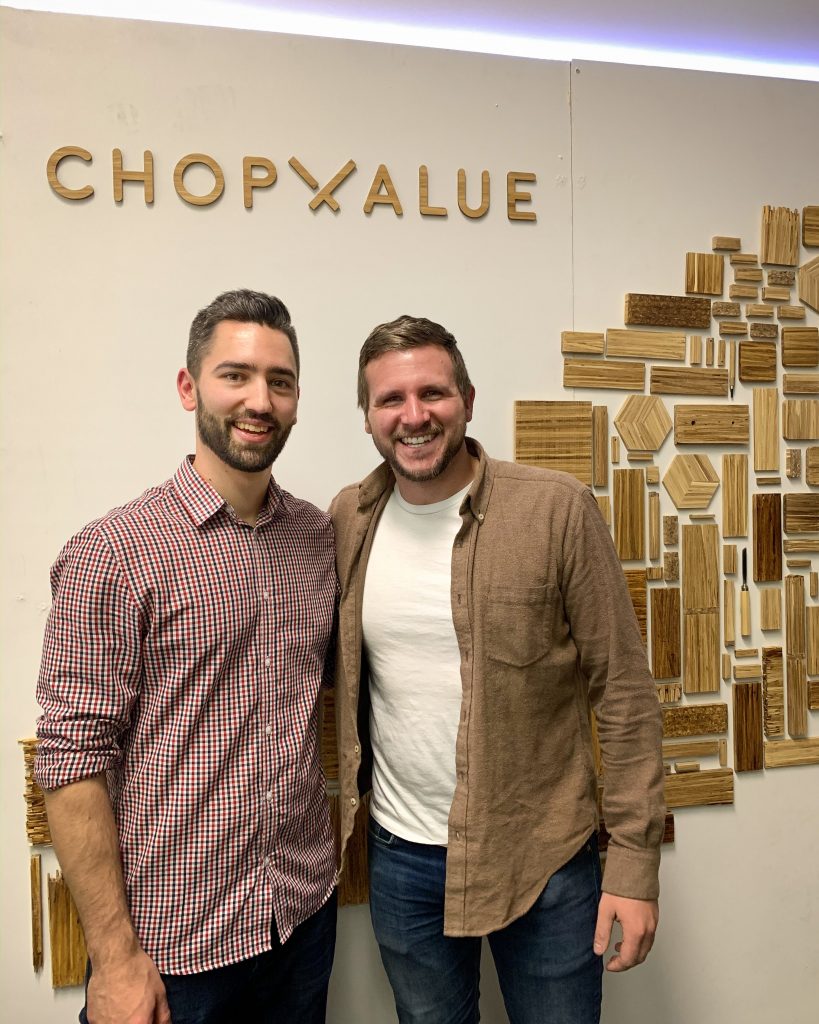
In this episode you’ll find out how Felix Bӧck and his team have recycled nearly 25 million used chopsticks into decor, furniture, and high-end custom products. Creating a truly carbon negative business that is part of the circular economy.
Join us for a discussion on how this business came to be, the impact it has, and how ChopValue plans to scale a very local business model. We discuss how other manufacturing industries should be paying more attention, and how the real success in circular economy businesses comes from adding enough value to the end product.
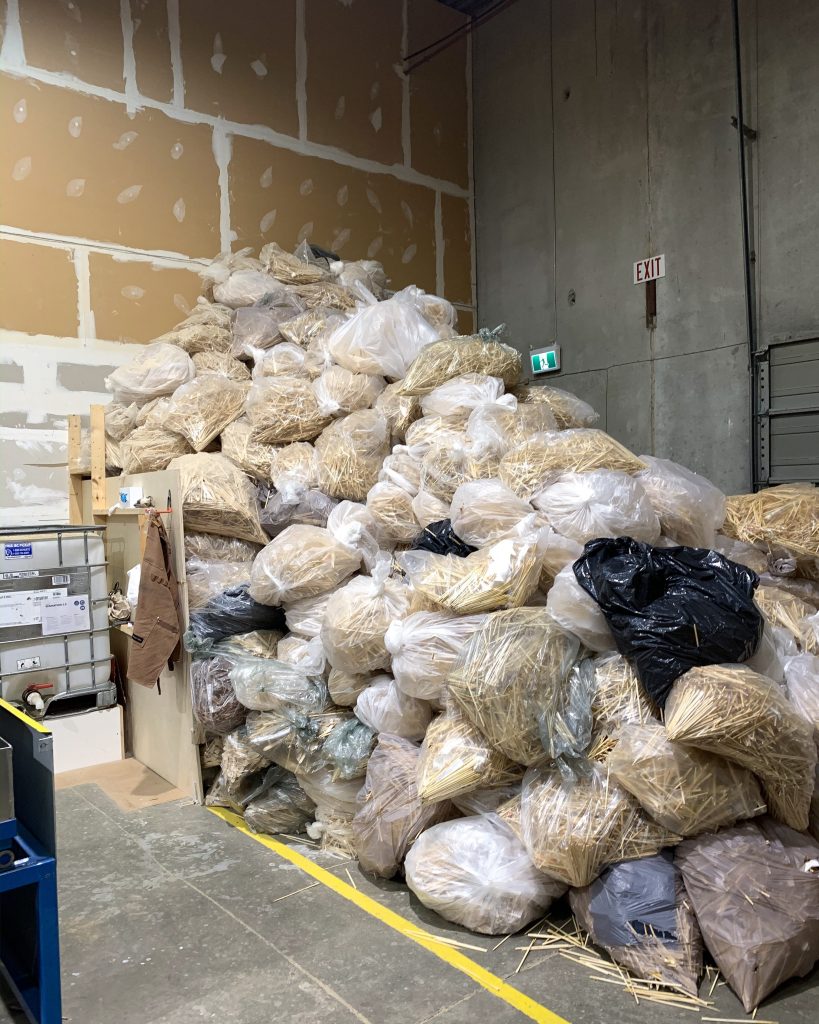
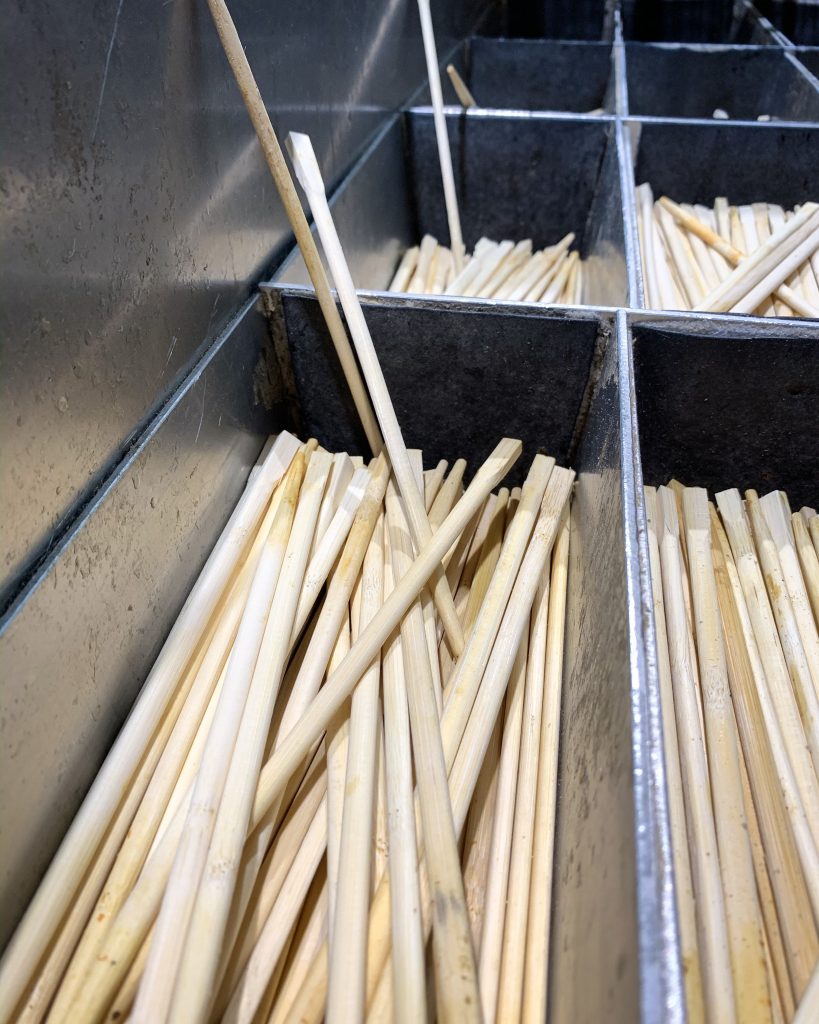
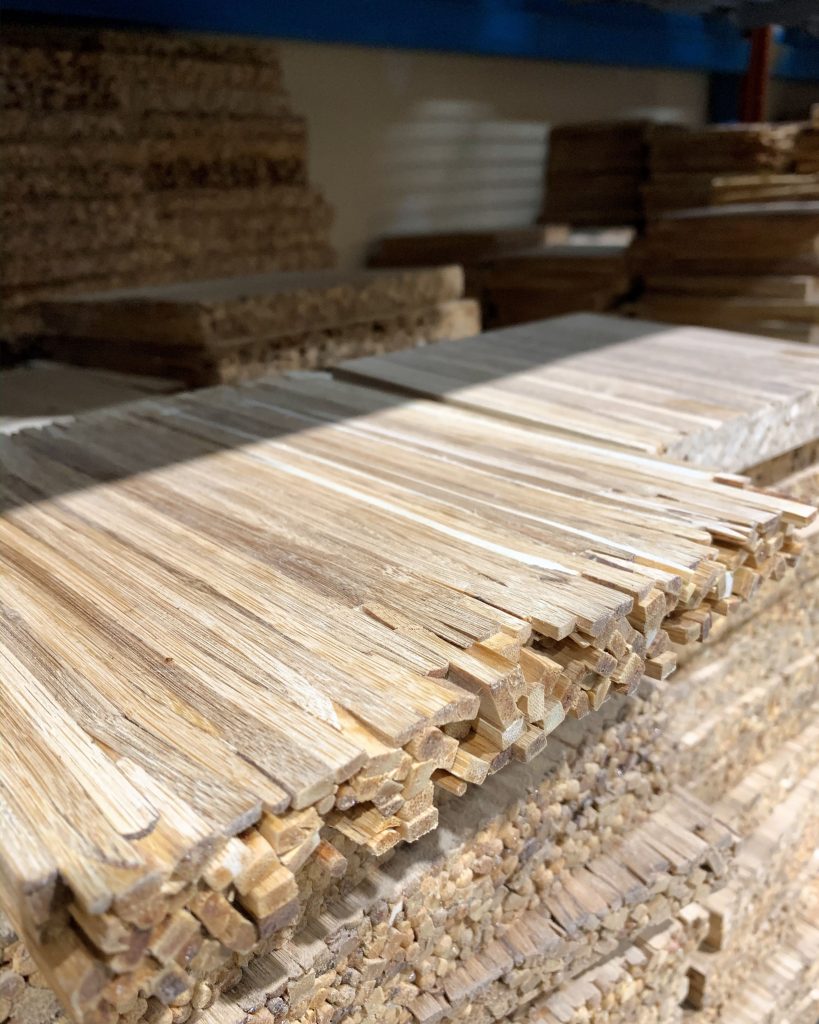
Not only did we get to have this interview in person, where I toured their microfactory, but after learning that ChopValue does custom laser engraving, I jumped on the opportunity to get some coasters created for my wife’s birthday present. These are used chopsticks that have been recycled into coasters, and then laser engraved with the actual handprints from my two daughters – quite the story! (And thanks ChopValue!)
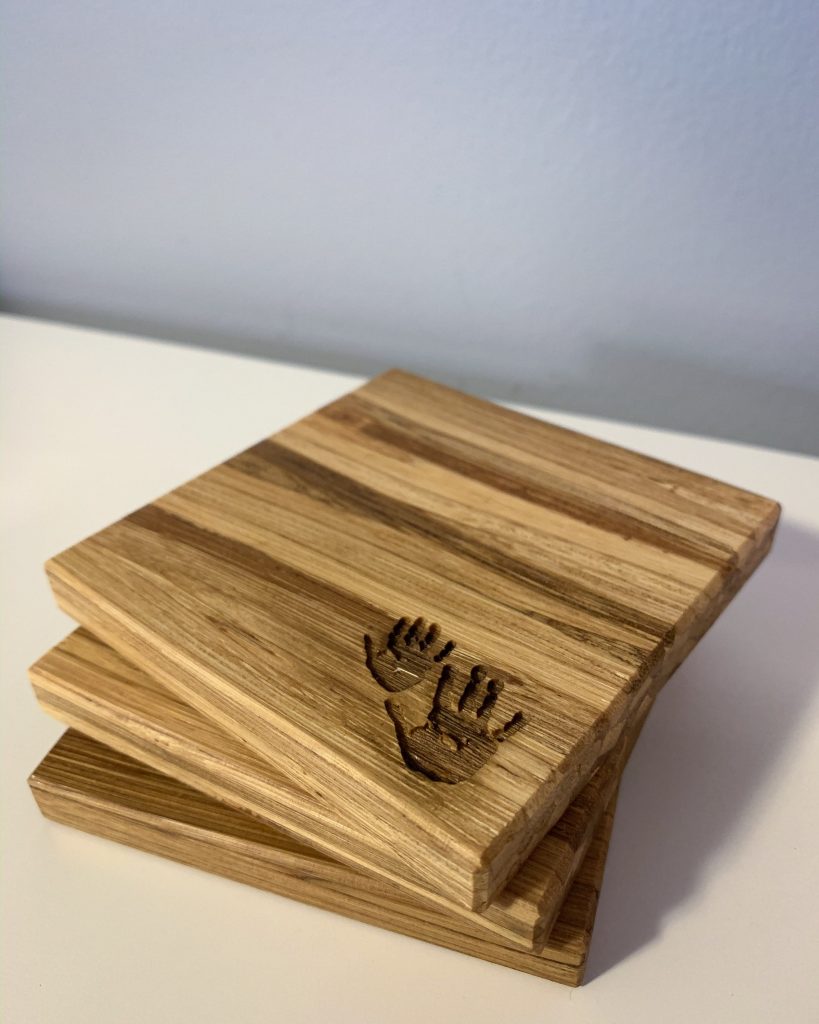
About Felix Böck
Felix is an engineer by trade, and founded a consulting firm, CrossLink Technologies in 2015, bridging industry and academia working on wood and bamboo process/composite technologies. This led Felix to see an opportunity in the wasted chopsticks, and start ChopValue. Felix has been named one of BC Business’s 30 Under 30, and is working on a PhD in Structural Bamboo Products at the University of British Columbia (UBC).
Instagram: @iboeck
About ChopValue
ChopValue is a Vancouver based company that collects and recycles used chopsticks and presses them into usable material. This material is manufactured into coasters, cutting boards, desktops, furniture, and decor pieces. ChopValue has expanded into Victoria and Montreal, and plans to keep expanding using it’s microfactory and local solution model.
Website: https://chopvalue.com/
Instagram: @chopvalue
Everything We Talked About in This Episode
[2:23] What the circular economy is and how ChopValue fits in
[3:51] How the idea for ChopValue came about, inspiration from everyday places
[4:27] Reference to Felix’s other engineering firm: CrossLink Technologies
[5:24] How are chopsticks actually pressed into boards
[6:35] Importance of not making it perfect, but instead making it natural, and pure, and keep the essence of it looking like a recycled material
[8:17] Their first entrance into the interior design market was with hexagon tiles and coasters
[9:41] Felix’s rebellious nature which led to determination and exploration of new projects
[11:03] How a family business exposed Felix to solving problems, instead of finding a job
[12:18] Frustration can be a driver and motivation to take action
[13:36] How the first few months and year wasn’t very difficult
[14:41] After production was established, within 2 weeks in they had 100,000 chopsticks recycled
[17:41] When people start knocking on the door offering investment, that’s when you start to feel how real it is
[18:10] 3 years in, close to 25 million chopsticks recycled so far
[18:20] Why it’s so important to align with the right investors and partners
[20:05] How Felix let’s culture develop naturally across the company
[23:25] How ChopValue’s success comes from bringing enough value to the end product, not just recycling it
[28:25] The thought leadership piece that keeps ChopValue excited
[30:02] How the Austin Mini (The Urban Harvester) is capturing attention for ChopValue and the importance of appreciating your culture.
Slogan: Size doesn’t matter if you want to lead to change
[32:22] ChopValue’s measure of impact is about the amount of people they can employ and inspire to care about what they’re doing
[36:10] Can the standard manufacturing industry change the way they work to be more circular
[37:39] In BC and Canada we do have a luxury problem where we don’t care about our resources
[38:54] The future is in scaling out the microfactory
[42:15] Dealing with the volume of chopsticks and how there is NO supply issue
[43:45] Felix’s advice for other entrepreneurs looking to start social enterprises
